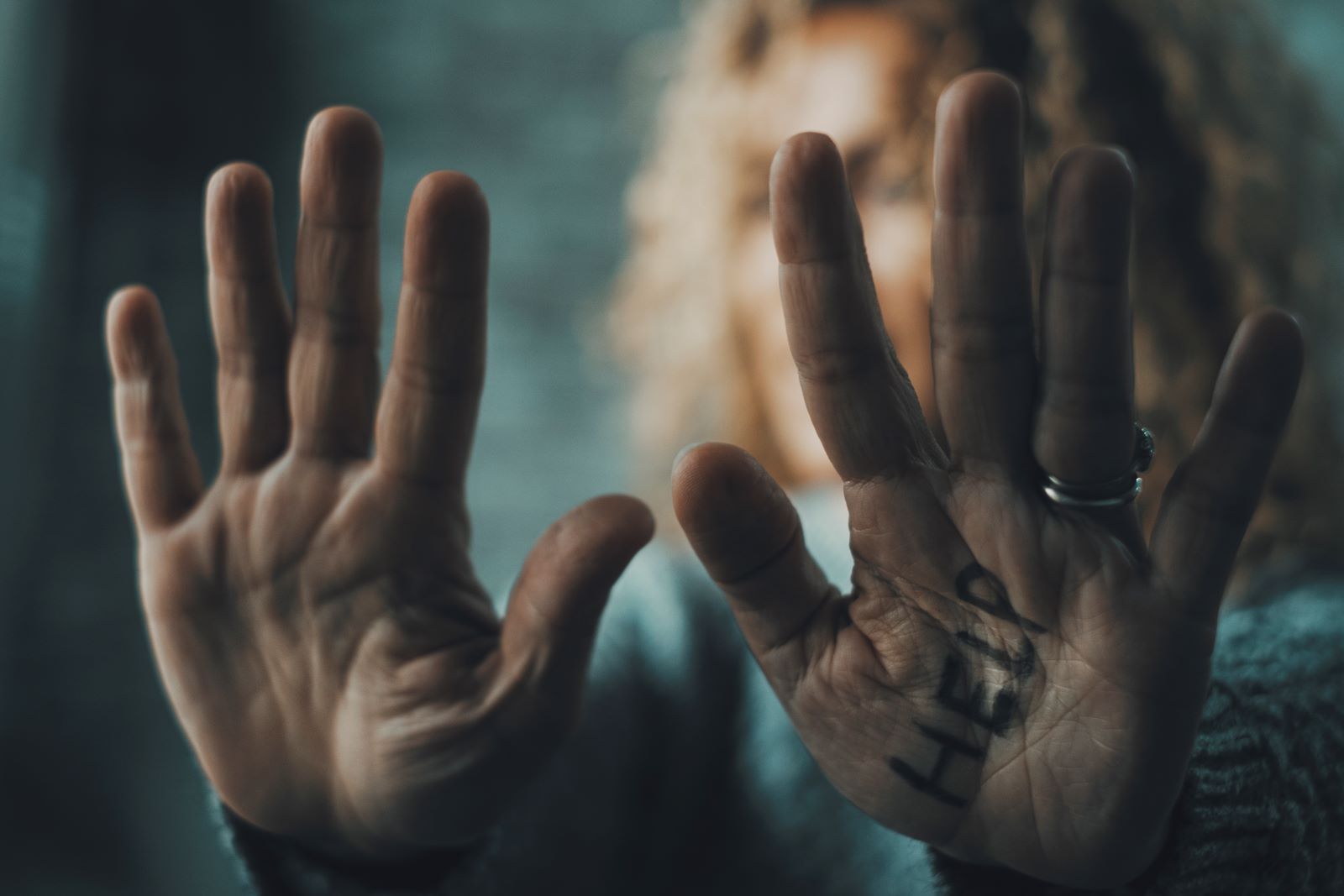New Jersey Domestic Violence Lawyer
Domestic Violence Convictions Have Serious Penalties

Few New Jersey criminal charges can change your life faster and more harshly than charges of domestic violence. In fact, your world can be thrown upside down instantly, well before you are actually charged with a crime. A domestic violence arrest – whether true or not – is enough under New Jersey law to have you removed from your home and separated from your kids, among other severe consequences. If you do not take your domestic violence charge seriously and hire an experienced New Jersey domestic violence lawyer as soon as possible, you could be risking everything from losing custody of your children, losing all of your weapons permanently, and being unable to own a firearm, losing your job, and being banned from coaching or supervising other children.
Why We Believe We Are the New Jersey Domestic Violence Lawyers for You
At Helmer, Conley & Kasselman, P.A., our New Jersey domestic violence lawyers understand what is at stake. While our domestic violence lawyers in New Jersey also understand that actual cases of domestic violence should be treated as the serious crimes they are, the sad reality is that false allegations are made or exaggerated for nasty reasons, such as gaining an advantage in a divorce case or custody dispute.
Our attorneys stand ready to protect your rights from the moment you reach out to us. Domestic violence cases in New Jersey move much faster than other criminal matters, and it can be easy to get steamrolled by prosecutors. If you choose us, a New Jersey domestic violence attorney will use their extensive experience and aggressive approach to criminal defense to clear your name, defeat your charges and bring your life back to normal.
What Is Domestic Violence in New Jersey?
Domestic violence in New Jersey is not just one offense; it can be any number of criminal offenses as set forth in the New Jersey Prevention of Domestic Violence Act of 1991 (PDVA). What makes an offense an act of domestic violence is that it is committed against a “protected person” with whom the accused has or had a relationship. Under the PDVA, protected persons include:
- Current and former spouses;
- Other adults who are present or former members of the alleged attacker’s household;
- Emancipated minors who are present or former members of the alleged attacker’s household;
- Current and former boyfriends and girlfriends;
- Parents of shared children; and,
- Individuals with whom the alleged attacker expects to have a child if the attacker or the alleged victim is pregnant.
Domestic violence charges against a protected person can be based on any of the following criminal acts:
- Homicide
- Assault and battery
- Terroristic threats
- Kidnapping
- Criminal restraint
- False imprisonment
- Sexual assault
- Criminal sexual contact
- Lewdness
- Criminal mischief
- Burglary
- Criminal trespass
- Harassment
- Stalking
- Criminal coercion
- Robbery
- Contempt of a domestic violence order
- Any crime involving risk of death or serious bodily injury
- Cyber harassment
A New Jersey Domestic Violence Lawyer Will Help You Fight Severe Penalties
A restraining order may only be the first of many consequences if you are ultimately found guilty of domestic violence. If someone files a criminal complaint, you could be facing significant fines, time in jail and harm to your reputation that could follow you for the rest of your life.

In domestic violence cases, the fines and prison time that are on the table are the same as those that apply in cases involving offenses against non-protected persons. New Jersey classifies crimes as “indictable offenses” and “disorderly persons offenses,” and the penalties for domestic violence crimes are determined based upon their classification:
- First-Degree Indictable Crimes – 10 years to life prison (depending on the crime charged) and a fine of up to $200,000.
- Second-Degree Indictable Crimes – Five to 10 years in prison and a fine of up to 150,000.
- Third-Degree Indictable Crimes – Three to five years in prison and a fine of up to $15,000.
- Fourth-Degree Indictable Crimes – Up to 18 months in prison and a fine of up to $10,000.
- Disorderly Persons Offenses – Up to six months in jail and a fine of up to $1,000.
- Petty Disorderly Persons Offenses – Up to 30 days in jail and a fine of up to $500.
How Spousal Abuse and Domestic Violence Arrests Affect Family Law Matters
As discussed above, the penalties for domestic violence convection can be substantial. All crimes carry possible jail time, and you can face consequences long after your release. But these are not the only consequences of domestic violence charges in New Jersey.
Facing charges can also impact your legal rights in family law matters. This includes issues related to divorce proceedings as well as child custody matters for unmarried parents. In addition to representing individuals in criminal matters, we represent individuals in family law matters, and we are intimately familiar with all of the ways that domestic violence charges can impact your life.
How a Domestic Violence Charge Can Impact Your Divorce
Domestic violence charges can impact divorce proceedings in a variety of different ways. For example,a domestic violence arrest may provide grounds for your spouse to seek a fault-based divorce. While New Jersey allows for “no-fault” divorce filings, it is also among the limited number of states that allow spouses to file for divorce on fault-based grounds.
Regardless of whether your spouse files for a fault-based or no-fault divorce, allegations of family violence can lead to problems with:
- Property Division – In New Jersey, the division of a couple’s marital assets is controlled by the law of “equitable distribution.” When deciding what is equitable or fair, judges consider several different factors. New Jersey law lists several specific factors but also allows for consideration of “[a]ny other factors which the court may deem relevant.” These factors can include allegations of domestic violence.
- Spousal Support – Similar to property division, rights to spousal support in New Jersey are determined based on a list of statutory factors. While New Jersey’s spousal support statute lists specific factors such as each spouse’s income, assets and debts, it also calls for consideration of “[a]ny other factors which the court may deem relevant.”
- Child Custody – New Jersey’s child custody statute requires all custody determinations to be made based on the “best interests” of the children involved. It also lists several factors to be considered, but in this case, the law specifically references “the history of domestic violence, if any.”
How a Domestic Abuse Charge Can Impact Your Child Custody Rights
Your partner or former spouse may be able to seek additional custody rights based on your arrest and, depending on the charges, it is possible that you could be considered an “unfit” parent.
What Are the Additional Consequences of Facing a Domestic Violence Conviction in New Jersey?

While these consequences are obviously very severe, they are far from the only consequences of facing accusations of domestic violence in New Jersey. In addition to a temporary restraining order (TRO), which the judge can issue without providing you with notice or the opportunity to be heard, you can also face a permanent restraining order following a Domestic Violence Hearing. A permanent domestic violence restraining order can include terms such as:
- Prohibiting You from Entering Your Home – If you and the alleged victim are currently residing together, your domestic violence restraining order could prohibit you from entering your own home.
- Prohibiting You from Visiting the Alleged Victim’s School, Work or Residence – Your domestic violence restraining order could also prohibit you from visiting the alleged victim’s school, place of employment, place of residence and other locations that he or she visits regularly.
- Prohibiting You from Possessing Guns or Other Weapons – Frequently, judges will include terms in domestic violence restraining orders that prohibit alleged abusers from possessing guns or other weapons. The police may also search your home and seize any weapons they find.
- Restricting Your Parenting Time or Suspending Your Child Custody Rights – If you have children, the judge may also restrict your parenting time rights, or you could potentially lose your custody rights entirely on a temporary basis.
- Prohibiting You from Engaging in Various Other Forms of Conduct – Domestic violence restraining orders in New Jersey also commonly include prohibitions on stalking, threatening harm and other forms of conduct targeting the alleged victim.
- Requiring Specific Evaluations and/or Treatments - You may be required to have a psychiatric evaluation and treatment, undergo alcohol and/or drug evaluation and treatment, attend weekly anger management counseling and pay for the alleged victim’s attorney’s fees.
Domestic violence restraining orders are issued in civil court in response to complaints filed by alleged victims. You can face a domestic violence restraining order even if you are not convicted of a domestic violence offense in criminal court. In fact, restraining order proceedings move faster than criminal cases, so you will need to defend against the alleged victim’s request for a domestic violence restraining order while your criminal case is pending.
Q&A with Our New Jersey Domestic Violence Lawyer
Is it True that the Police are Required to Make an Arrest When They Receive a Domestic Violence Complaint?
Yes, but only in certain circumstances. Under New Jersey law, the police must make an arrest when they receive a domestic violence complaint if:
- The domestic violence complaint involves a weapon;
- The complainant is physically injured or exhibits “manifestations of an internal injury;”
- The alleged perpetrator is in violation of a domestic violence restraining order; or,
- The responding officer believes that “other relevant factors” create probable cause for an arrest.
Even if the police aren’t required to make an arrest, they can still make a discretionary arrest based on each situation. Often, if there is any question about what has happened, the police will make an arrest out of caution to protect the victim.
If you have been arrested for domestic violence in New Jersey, this does not mean that you are guilty. But it does mean that you are facing an uphill battle. A domestic violence arrest can have immediate consequences, and it will be up to your domestic violence lawyer to prove that your arrest was unwarranted.
How Do the Police Determine Whom to Arrest if Both Individuals Are Injured?
When the police respond to a domestic violence call and both individuals are injured, the police must examine the circumstances at hand to decide who to arrest. When doing so, they will consider factors such as:
- Any history of domestic violence between the parties involved;
- The extent of injuries;
- Whether either individual seems to be in fear of further physical harm; and,
- Whether it appears that someone was acting in self-defense.
Even if you believe that you are guilty, an experienced domestic violence defense attorney may be able to have the charges either reduced or dismissed against you. Helmer, Conley and Kasselman has many former assistant prosecutors, some of whom were police officers before they were attorneys, with hundreds of years of combined law enforcement experience, which is useful in knowing how to defend you in a domestic violence case.
Can I Be Forced to Undergo a Psychiatric Evaluation?
Yes. The judge can require you to undergo a psychiatric evaluation as part of your sentence, among other penalties. The judge may order you to participate in anger management counseling, obtain alcohol or drug addiction treatment, and participate in other treatment programs as well. If the judge orders you to undergo evaluation or receive treatment and you refuse to comply, this can lead to additional penalties.
Is It a Defense to Domestic Violence that We Weren’t Living Together?
No. Living together is not a requirement for New Jersey prosecutors to pursue domestic violence charges. Under New Jersey law, committing an assault against, harassing, or committing another criminal act against a boyfriend, girlfriend, or parent of a shared child constitutes domestic violence.
What if the victim claims to be your boyfriend or girlfriend but isn’t? While this might help you avoid the additional penalties that apply in domestic violence cases, you can still face a conviction for the underlying assault or other crime. As a result, you must assert a comprehensive defense, and you will need to have an experienced New Jersey domestic violence lawyer on your side.
Charged with Domestic Violence in New Jersey? Call Helmer Legal Today
At Helmer, Conley & Kasselman, P.A., our New Jersey domestic violence attorneys are available on an emergency basis to immediately get to work handling such matters. Our team has more than 600 years of combined experience and a track record of positive outcomes for those accused of domestic violence. Call us at 877-435-6371 or contact us online today to discuss your situation in confidence.

